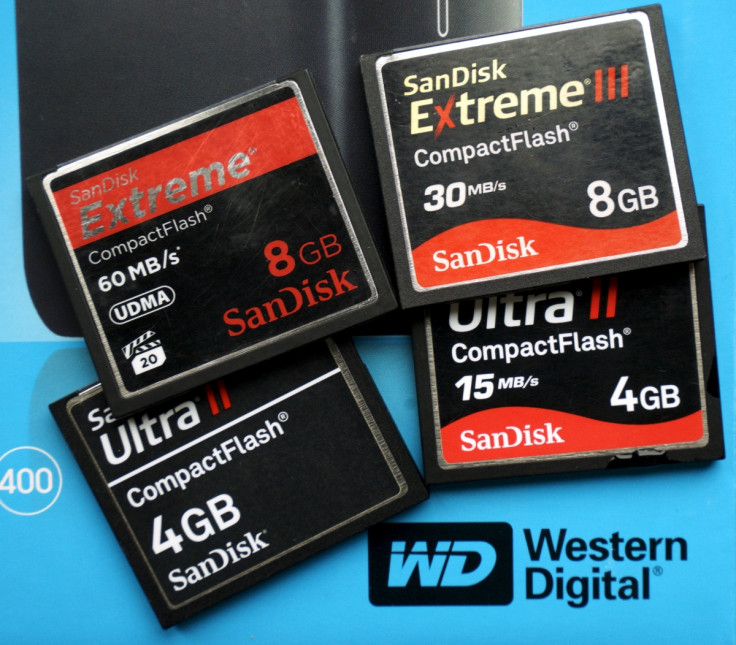Western Digital announces acquisition of SanDisk for about $19bn

Storage solutions company, Western Digital on 21 October (Wednesday) announced that they have entered a definitive agreement to acquire all of SanDisk's outstanding shares in a combination of cash and stock for about $19bn (£12.3bn, €16.8bn). The transaction has been approved by the boards of directors of both companies. This deal values SanDisk's common stock at $86.50 a share.
It was previously reported that Western Digital is in advanced talks to buy SanDisk, a company that claims to be the third-largest flash memory manufacturer, behind Samsung and Toshiba.
The acquisition will favour Western Digital as it would now be able to double its addressable market and expand its participation in higher-growth segments. The deal will also help to vertically integrate into NAND, securing long-term access to solid state technology at lower cost.
Steve Milligan, chief executive officer at Western Digital said, "This transformational acquisition aligns with our long-term strategy to be an innovative leader in the storage industry by providing compelling, high-quality products with leading technology."
Recently, China's state-backed Tsinghua Holdings had agreed to buy a 15% stake in Western Digital for about $3.78bn through its subsidiary Unisplendour. The payment terms to SanDisk will now depend on when this transaction will close.
If the Unisplendour–Western Digital deal closes prior to the Western Digital–SanDisk deal, Western Digital will pay $85.10 per share in cash and 0.0176 shares of Western Digital common stock per share of SanDisk common stock. However, if the former deal has not closed or has been terminated, $67.50 in cash and 0.2387 shares of Western Digital common stock per share of SanDisk will be paid.
The US semiconductor industry has been witnessing many deals in recent times as it is affected by an oversupply of cheaper products from China and has lowered the prices of memory chips.
A recent example is that of semiconductor equipment maker, Lam Research agreeing to acquire its rival peer, KLA-Tencor Corp for about $10.6bn.
In October, research firm Gartner said that semiconductor sales across the world are expected to decline in 2015, the first time in three years, partly due to an increasingly saturated market for smartphones.
© Copyright IBTimes 2024. All rights reserved.





